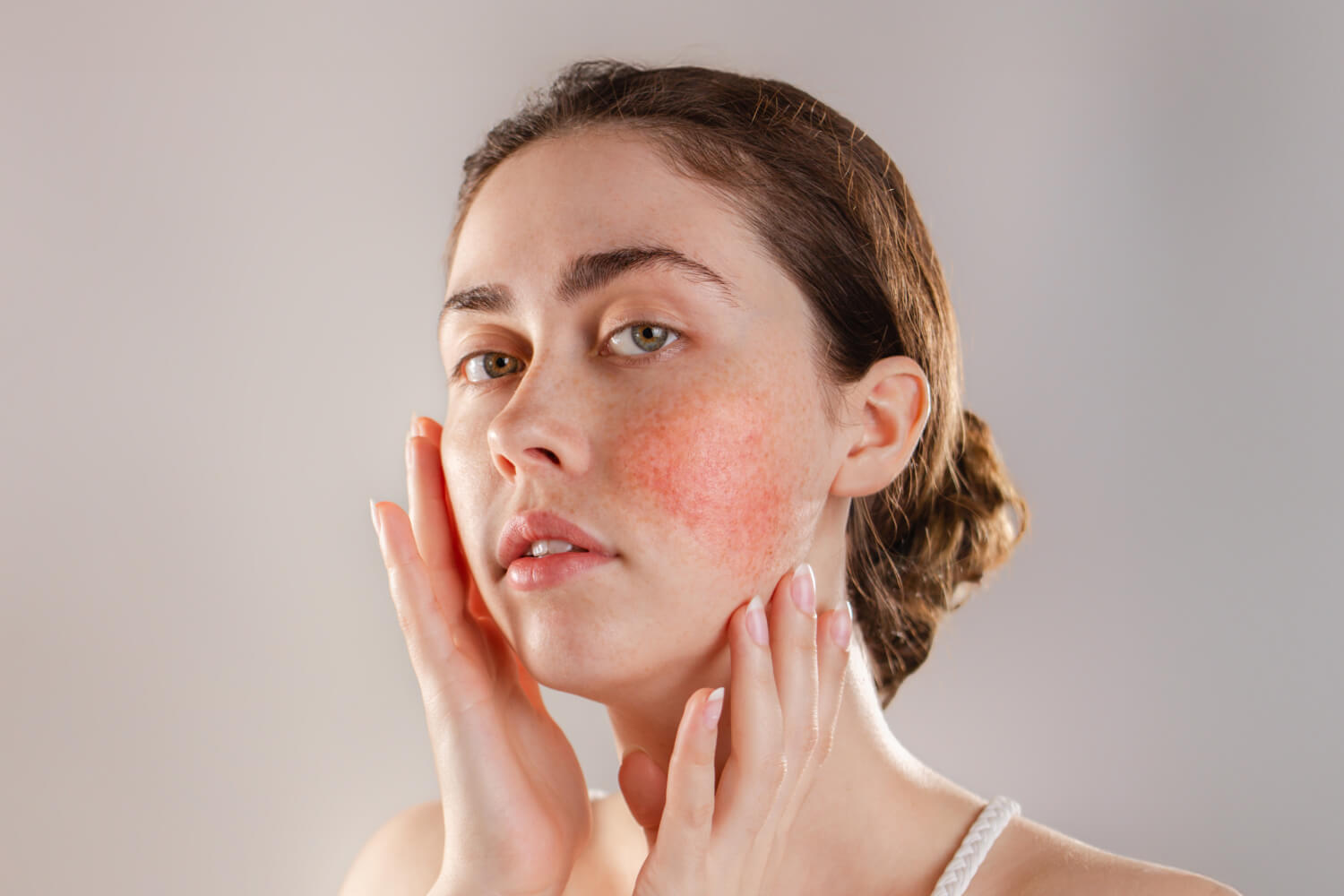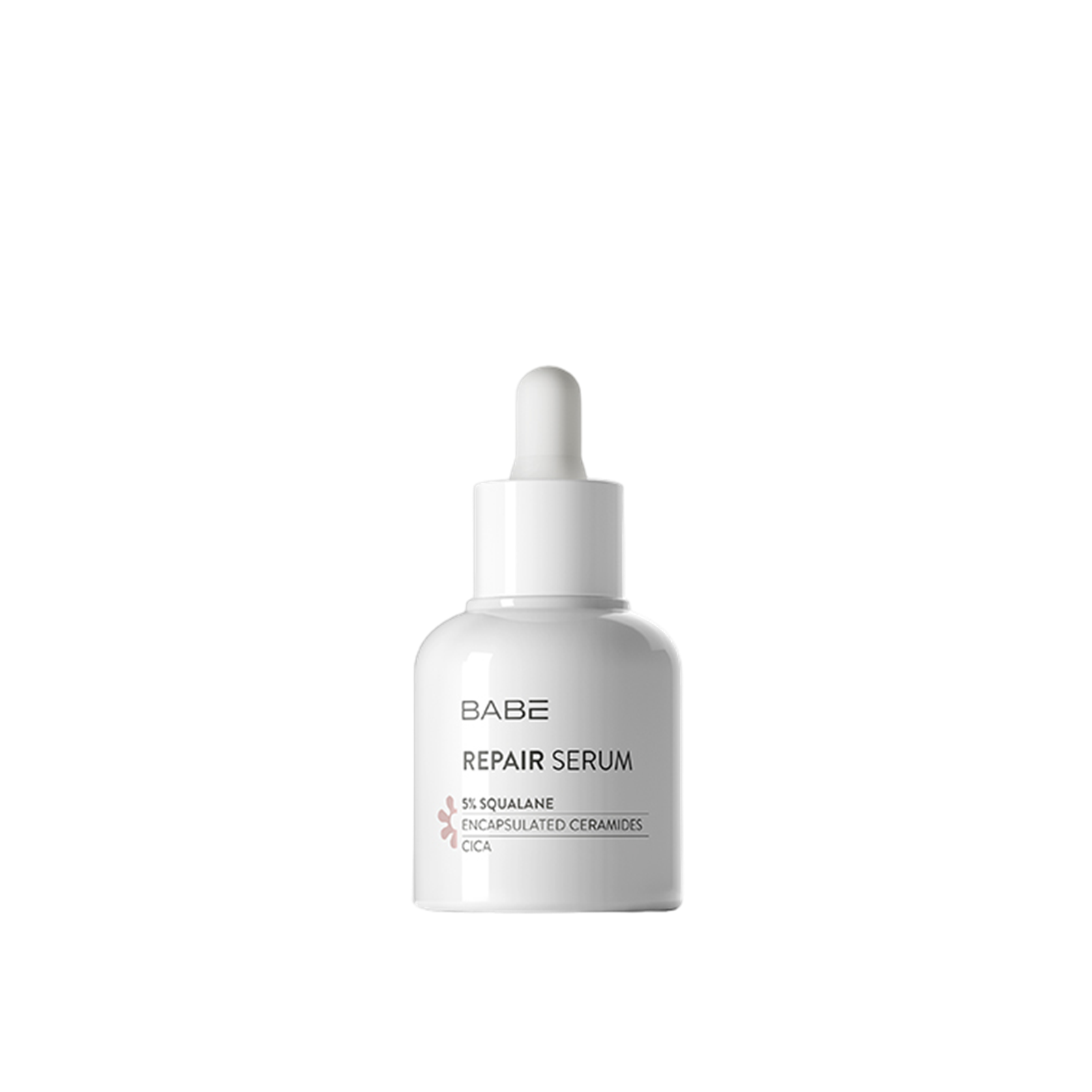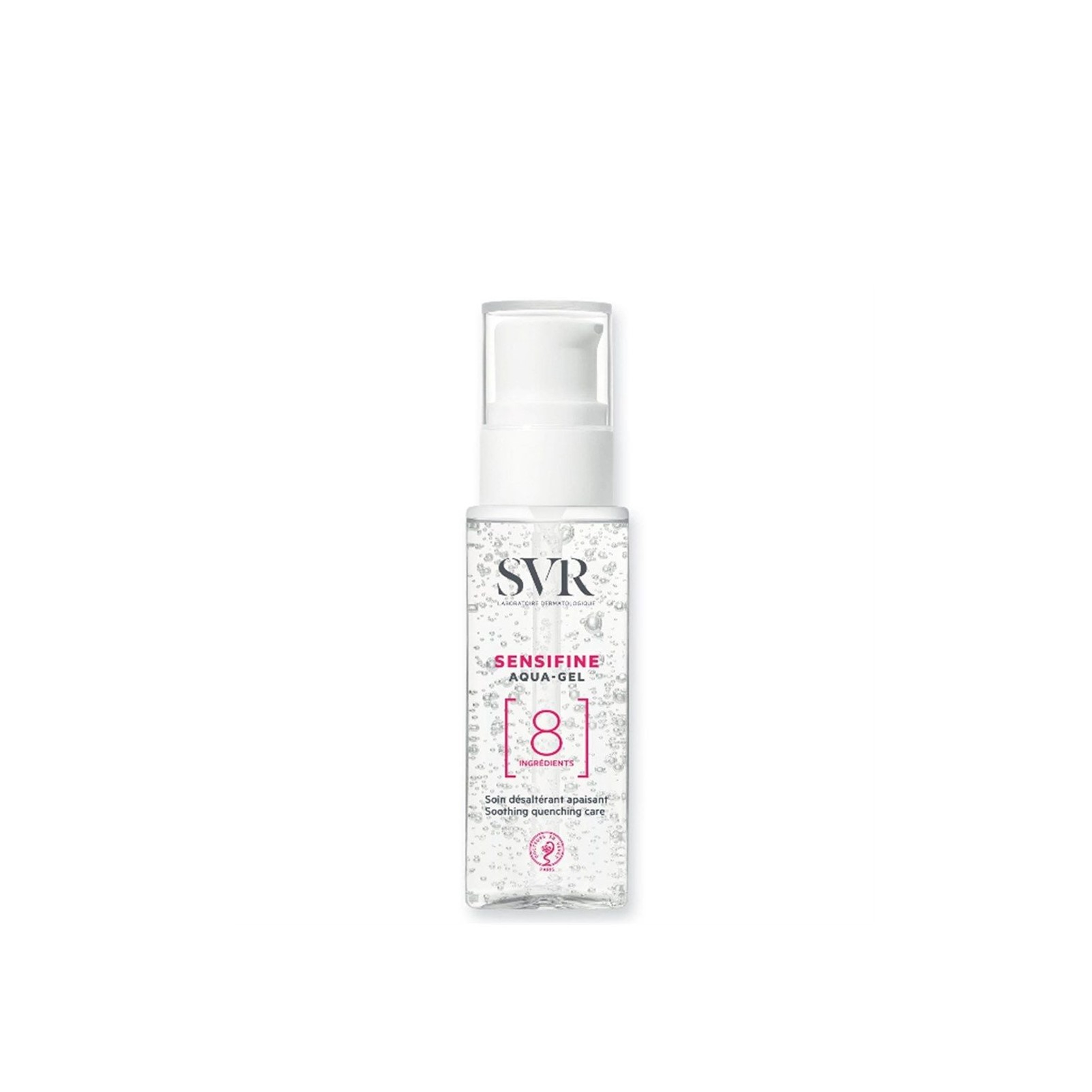
Skincare should be a moment of enjoyment and self-care, but it does not always feel like that. For those who may have experienced a burning sensation after skincare, applying the daily moisturizer may be a moment of uncertainty, combined with the fear of experiencing an uncomfortable feeling. Is it normal? Should I be concerned? To help you find an answer to these and other questions, we have gathered the most likely hypotheses that may explain the issue.
Is it normal for my face to burn after skin care?
Even though it may be normal for some formulas to cause a slight sting on the skin—we’ll see more about that in a minute—that shouldn’t be the case for your everyday hydrating moisturizer. If you experience an uncomfortable burning sensation that doesn’t go away quickly, then you should wash your face right away and discontinue use of the product.
It’s the ingredients
The skincare world is a fun one to navigate, with hundreds of interesting active ingredients today serving your skin and beauty. While some may be quite harmless, some are potent enough to offer visible results in a short amount of time—and that may come with a price tag for your skin. Some examples of actives that quickly transform your skin would be retinol, vitamin C, and all things exfoliating acids, like glycolic, salycilic, or lactic acid (look out for acronyms like AHA, BHA, PHA for these last). You may have heard of these ingredients since many formulas today feature a specific one in a high percentage while promising to deliver visible results. While these claims may be true—with retinol, for example, having science back up to prove its efficacy—they may be potentially sensitizing for your skin, and that may include some burning sensation after skincare.
Important to note that while your skin may be ok with some ingredients on their own, it may not be happy when you combine multiple strong actives. If you have experienceda burning sensation on the skin before, be careful when adding new skincare actives and avoid introducing many new formulas at once.
Long story short, if your skin is uncomfortable after using skincare, check for the active ingredients in the formula. If you find one of the suspects, maybe it’s time to test the hypothesis of the product not being a good match for your skin!
You have sensitive skin
Skin sensitivity is one of the most likely explanations for a burning sensation after applying your regular moisturizer. And what exactly is skin sensitivity, you may ask? We have an entire post about skin sensitivity in which we explore the topic in detail, but let us simplify now: We’d say that sensitive skin is skin that tends to exhibit signs of irritation when in contact with stimuli that would not normally trigger a skin reaction. A regular moisturizer may well trigger an exaggerated skin reaction from your skin, and you may experience a burning sensation from a moisturizer or serum.
To sum things up, we can say that those with sensitive skin often experience a burning sensation after applying skincare, even when using formulas that don’t contain a high concentration of an active. If that’s your case, stop using the skincare that is triggering your skin and consult with a healthcare professional to understand if it’s skin sensitivity or if there’s something more to it. We’ll see more about that in a minute.
You have a compromised skin barrier
The skin barrier, with its pretty self-explanatory name, is the top layer of your skin that acts like a shield to keep moisture in while protecting from external aggressions. When the skin barrier is compromised—whether after a physical aggression, like harsh chemical exfoliation, or when exposed to a long period of harsh climate conditions—you may experience a burning sensation after applying skincare. Even when applying formulas that are suitable for your skin condition, you may experience some tingling. The line is drawn on the intensity and lasting burning sensation: if it stings for a bit and then goes away, that may be normal for a compromised skin barrier. However, if the uncomfortable sensation persists, then you should rinse off the product and stop using it immediately.
The good news is that if you have a compromised skin barrier, it can be temporary, and you may strengthen the skin with repairing formulas, like the Sensilis Skin Rescue [Serum S.O.S.] Soothing Restorative Serum. Or it may be part of a skin condition, like we’re about to see, and that would be something to always keep in mind when shopping for skincare.
You may have an underlying skin condition
This would explain a lot. Eczema, rosacea, and dermatitis, for example, are skin conditions where the skin can be especially fragilized; and probably most moisturizers, during active periods of the skin condition, would lead to a burning sensation. Regardless of the skin condition that could explain your issue with skincare, you’ll need a dermatologist’s advice to find suitable formulas for your needs.
Using formulas specially developed for your skin condition is key to making sure you don’t add further stress to your skin. In fact, suitable skincare can significantly reduce discomfort and actively contribute to reducing the symptoms of your skin condition.
Should I stop using a product if it burns my face?
Well, it depends. As we’ve previously discussed, it’s expected, for some ingredients, to have a slight burning sensation. If that’s the case, you should probably find information about that on the product packaging. Some ingredients need to be gradually introduced into your skincare rotation, and it may be normal to experience some burning during the first few uses. This is probably the only scenario where you don’t necessarily need to stop using a formula that causes a burning sensation.
In most cases, a burning sensation means that your skin does not agree with the formula you chose. If that’s the case, you should discontinue the use of the product until you can get professional advice. In the meantime, trying a minimalist formula may be the way to go to make sure you won’t further stress your skin.
How to prevent a burning sensation after skincare
The number one tip is to patch test. By conducting a patch test before applying the product, you’ll be able to see how a small area of your skin reacts to the formula, avoiding experiencing discomfort across the entire face or body.
Another way to prevent is to introduce active ingredients like retinol and exfoliating acid slowly and in low concentrations in your routine to make sure that your skin gets the time it needs to get along with it. When combining ingredients, make sure to check for their compatibility and be aware of how your skin feels upon application.
If you’d like to use retinol but your skin won’t agree, then you may try retinol alternatives to get the results you want without compromising skin sensitivity.
A burning sensation after applying skincare may be your cue to learn that you have sensitive skin. Learn all about it to understand how to care for it!
Professional Makeup Artist & Beauty Writer



![Sensilis Skin Rescue [Serum S.O.S.] Soothing Restorative Serum](https://static.beautytocare.com/media/catalog/product//s/e/sensilis-skin-rescue-serum-s-o-s-soothing-restorative-serum-30ml.jpg)


